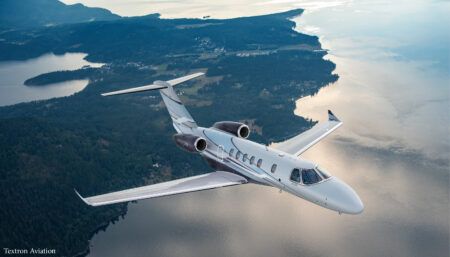Advent Aircraft Systems is now accepting advanced orders of its eABS anti-skid braking system for Beechcraft King Air B200 series aircraft. The company has submitted an application for an STC with the FAA, and expects to receive approval for the system in the first quarter of 2017, if not before. The system is identical to the eABS available for the King Air B300, which received STC approval in February 2016.
The eABS for the B200 can be ordered through the same dealer network as the B300 system. All Textron Aviation-owned service centers, as well as selected independent King Air service facilities, are authorized to sell and install the B200 system. The manufacturer’s suggested list price for the system, which includes all installation hardware but before installation labor, is US$55,889.67.
To kick off advanced orders for the B200 eABS, the company is offering a US$6,000 rebate to the first 10 operators in the USA that commit to purchasing eABS for their B200 during the incentive program, with delivery subject to certification. Operators who order under the incentive program will have up to a year to complete installation after the STC is issued and receive their rebate.
The eABS is designed especially for turbine powered aircraft up to 20,000 lb MTOW. The system requires no change to existing braking system components. The eABS was first certified on the Eclipse EA500/550 in December 2013, with more than 110 ship sets delivered to Eclipse Aerospace to date. In addition to Eclipse and King Air aircraft, the system is in FAA certification on the Pilatus PC-12/NG and the Beechcraft T-6B/C trainer.
Advent says the eABS provides better directional control, reduced tire wear and potentially shortened stopping distances on dry runways or those contaminated with water, ice and snow. The system is designed to eliminate flat-spotted and blown tires during aggressive stopping and includes touchdown protection and a programmable low-speed cut-off. The system also offers an alternative to the use of reverse thrust, which Advent says helps to reduce prop erosion and the risk of FOD ingestion while gaining the ability to confidently apply the brakes immediately after touchdown or in situations where hard braking is desired, such as a rejected take-off.
November 1, 2016




